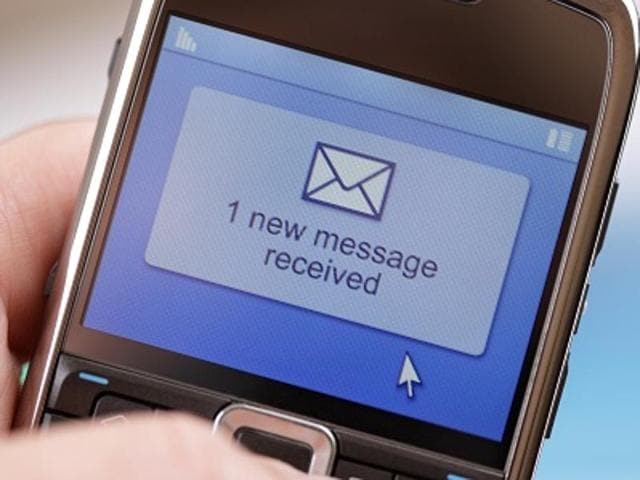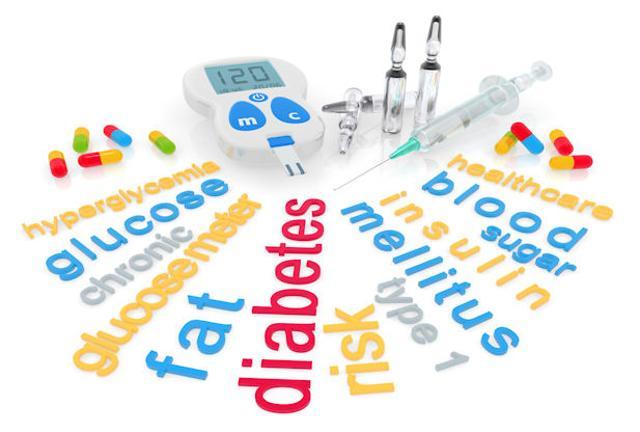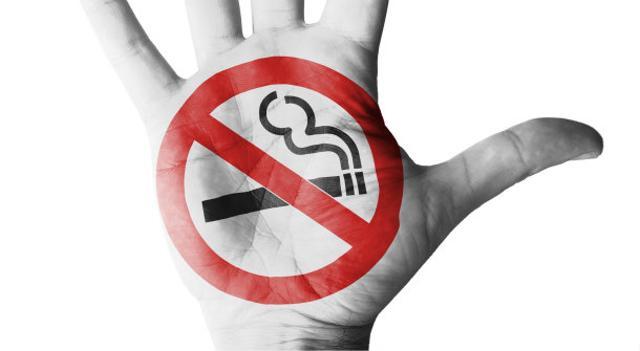Doctor on call: Using text messages to improve public health in India
Text messaging is a particularly effective and inexpensive intervention because people carry their mobile phones with them through the day and the messages reach them without need for consistent connectivity or Internet capability.
Instant connectivity has seeped into our lives at every level, whether it’s tuning in to global news, managing money, booking cabs or simply catching Pokemon on the go. Despite its diversity of use and India’s mind-boggling subscriber base of more than one billion, the ubiquitous mobile phone remains an underused health prevention and management tool.

Read: SMS messages such as ‘be strong’ can help you kick the butt
App-stores are flooded with health- and fitness-monitoring apps, yet the use of simple texts to reach out to masses using mobiles without data connectivity needs to be harnessed to deliver behaviour-changing health messages to people with limited access to healthcare, electricity and sanitation.
Text messaging is a particularly effective and inexpensive intervention because people carry their mobile phones with them through the day and the messages reach them without need for consistent connectivity or Internet capability.

Diabetes
Studies from India show it works. A study of a mobile health (mHealth) initiative to lower diabetes risk behaviours in India showed that mDiabetes, a text messaging programme implemented among one million Indian adults, prompted people to eat more fruits and vegetables and less fat but did not make them exercise more.
The study, published in Journal of Medical and Internet Research last week, showed that people who got twice-weekly text messages from a pick of 56 messages in their choice of 12 languages over six months became more aware about the causes and complications of diabetes, which affects close to 70 million people in India. At the end of the six months, people who got text messages started eating healthier – as measured by eating more fruit, vegetables and less fat – but did not exercise more.

Quitting tobacco
Graphic pack warnings and health messaging in films and television may make tobacco users want to stop, but with cessation clinics few and far between, text messages once again function as virtual counsellors. India’s ministry of health has started a mCessation project that supports people trying to stop tobacco use by texting advice alongside with traditional treatments, such as nicotine-replacement therapies.
An analysis of 22 interventions of close to 16,000 men and women from 10 countries in north America, Europe and Asia, including India, showed that smokers who received a text messaging intervention were more likely to abstain from, cut back on or quit smoking that those who didn’t. The study, published in journal JMIR mHealth and uHealth, found text messaging far more effective than print- and online-interventions in improving health behaviours and recommended it be made part of public health policy to keep people free of disease.
Mobile Academy
Dr Anita and her assistant Nishant Kumar are the most sought after gynaecologist team in Bihar that has India’s highest fertility rate - the average number of children each woman gives birth in her lifetime -- of 3.6, compared to the national average of 2.3. Depending on the stage of pregnancy and the age of baby, Dr Anita advises on nutrition, vaccinations, breast-feeding, child health, sanitation, hygiene and contraception, among others.
The two are not real persons but recorded voices that, along with 40 illustrated cards on a kunji (Hindi for key ring), works as an audio-visual aid for community health workers advising families on mother and child health. The recording are part of the the government’s Mobile Academy project, a phone-based dial-in training service that regularly upgrades skills of health workers, who can call the mAcademy with queries for 90% less than standard rates.
Kilkari is a similar initiative that delivers free, weekly, time-appropriate 72 audio messages about pregnancy, child birth and child care directly to the families’ mobile phones from the second trimester of pregnancy until the child is one year old.
TB Missed Call
Calling 1800-11-6666 provides counselling, reminders, and informations on medicines and free treatment options for tuberculosis (TB) closest to where the caller lives or works. The service, which was started in Delhi, Punjab, Haryana and Chandigarh, will be scaled up to include other states to help people complete the six-eight months course of the DOTS (directly observed treatment short course) treatment needed to be free of tuberculosis infection. Stopping treatment midway leads to drug-resistant TB, which takes longer and more toxic medicines to treat.
India accounts of an estimated 2.2 million of the 8.6 million new TB cases each year, estimates the World Health Organisation. Though India made TB a notifiable disease -- which means all cases have to be reported to the Centre -- in 2012, infections treated in the private sector often go unreported, leading to under-recording and under-treatment of the infection.
Catch your daily dose of Fashion, Taylor Swift, Health, Festivals, Travel, Relationship, Recipe and all the other Latest Lifestyle News on Hindustan Times Website and APPs.
Catch your daily dose of Fashion, Taylor Swift, Health, Festivals, Travel, Relationship, Recipe and all the other Latest Lifestyle News on Hindustan Times Website and APPs.





